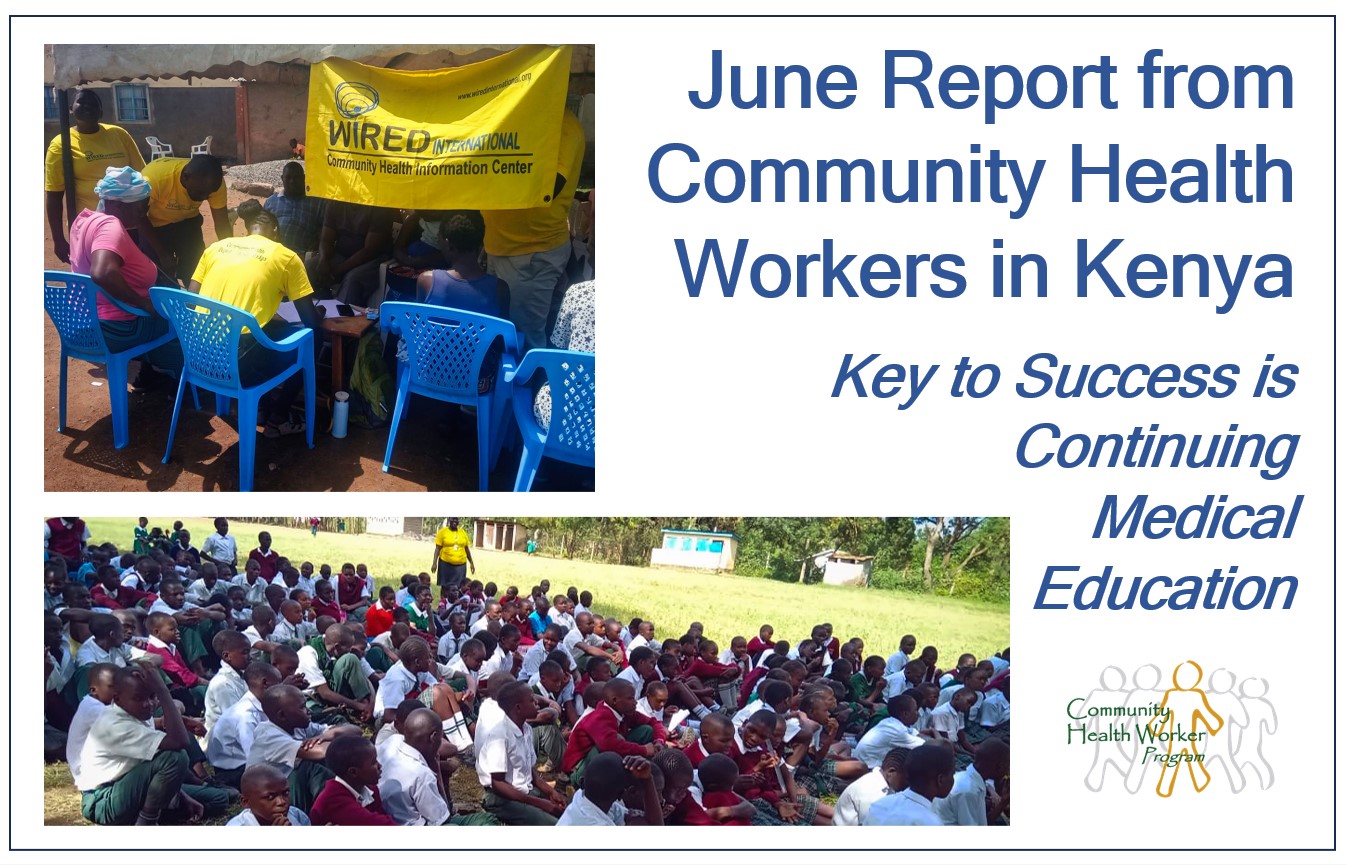By Allison Kozicharow; Edited by Elizabeth Fine
During another successful month of deployment, 20 community health workers (CHWs) in Kisumu, Kenya, reached a total of 10,486 people with health services. Working 24 hours per week, each of the CHWs met with at least 34 patients a week, and the largest number seen in a week by a single CHW was 578, most of them in health training classes.
In June the top health-related concerns were, as follows, in order of prevalence:
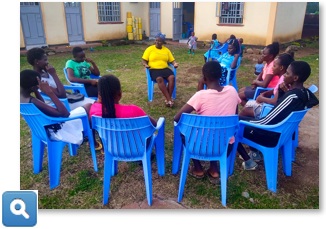 HIV/AIDS
HIV/AIDS- Menstrual hygiene
- Cholera
- Mental health
- Malaria
- Sanitation and hygiene
- Tuberculosis
- Teenage pregnancy
- Communicable diseases
How do WiRED CHWs keep their training razor sharp? When WiRED released our CHW program in 2020 we followed the World Health Organization requirement that, after basic training, CHWs annually must earn continuing medical education (CME) credits. WiRED’s CME program enables CHWs, nurses and other healthcare personnel to maintain their currency and expand their skills in basic medical procedures and community health issues.
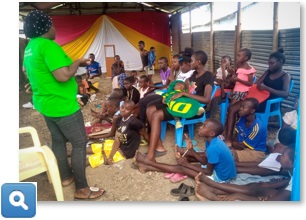 As CHWs broaden their health knowledge through CME, WiRED continues to deepen our available curriculum for them to choose from. Despite our already plentiful e-library of 400+ health education modules, WiRED always seeks to create new modules and series of modules in rapid response to a new epidemic, in bringing a climate change health issue to light or in relation to an urgent or asked-for health need in a given community — along with translations into languages other than English as needed. Here are several examples of added topics from the past few years (find all modules and series here):
As CHWs broaden their health knowledge through CME, WiRED continues to deepen our available curriculum for them to choose from. Despite our already plentiful e-library of 400+ health education modules, WiRED always seeks to create new modules and series of modules in rapid response to a new epidemic, in bringing a climate change health issue to light or in relation to an urgent or asked-for health need in a given community — along with translations into languages other than English as needed. Here are several examples of added topics from the past few years (find all modules and series here):
- 2020: Coronavirus (first of many COVID-19 modules), Sickle Cell Disease
- 2021: Diphtheria, Overweight and Obesity, Air Pollution, Immune System for Children
- 2022: Quitting Alcohol for Health, Vision Screening, Monkeypox, Nutrition Overview
- 2023: Health and First Aid, Critical Care Training, First Aid for Heat-Related Illnesses, Opioids
- 2024: Lassa Fever, Rabies (coming soon!)
WiRED’s newly formed One Health team of physicians, nurses, veterinarians and environmental health specialists will soon develop and release an introduction to One Health and a package of in-depth modules addressing specific related topics.
CME benefits patients and CHWs alike. WiRED’s CME program is critical to CHW success now and in future to educate and elevate the health of low-resource communities worldwide.
Community Health Workers Tell Their Stories
CHWs in Kisumu routinely provide us with stories about their work and the community members they serve. Here are three stories describing a typical CHW’s day
Gender-Based Violence
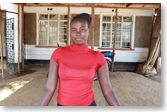 During my daily work rounds I came across a woman who continually suffered maltreatment from her husband. I took the time to speak with her, and she opened up to me. She said that her husband beats her regularly and even sometimes the children. He also sends her and the children away at times. I decided to approach the husband, who said “Don’t meddle in my affairs.” I referred the woman to the authorities and decided to accompany her to their facility and help her discuss her situation with them. I left her in their hands and they helped her.
During my daily work rounds I came across a woman who continually suffered maltreatment from her husband. I took the time to speak with her, and she opened up to me. She said that her husband beats her regularly and even sometimes the children. He also sends her and the children away at times. I decided to approach the husband, who said “Don’t meddle in my affairs.” I referred the woman to the authorities and decided to accompany her to their facility and help her discuss her situation with them. I left her in their hands and they helped her.
—CHW Mary Atieno
Weight and Blood Pressure
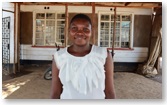 I was doing my daily outreach in my community when I met a 16-year-old girl. She seemed to me to be overweight for her age, and her feet were swollen. I talked with her, and she said she was fine, had no difficulties and thought the swelling was normal. I was troubled by this and so I took her to the nearest medical facility. She saw a nutritionist who recorded her weight at 180 lbs. Then her blood pressure turned out to be very high. The nurse convinced the girl that she needed medical attention and her mother realized that something was wrong with her daughter. The girl continued with more consultation, diagnosis and treatment.
I was doing my daily outreach in my community when I met a 16-year-old girl. She seemed to me to be overweight for her age, and her feet were swollen. I talked with her, and she said she was fine, had no difficulties and thought the swelling was normal. I was troubled by this and so I took her to the nearest medical facility. She saw a nutritionist who recorded her weight at 180 lbs. Then her blood pressure turned out to be very high. The nurse convinced the girl that she needed medical attention and her mother realized that something was wrong with her daughter. The girl continued with more consultation, diagnosis and treatment.
—CHW Linet Awuor
Teenage Pregnancy
During my usual work as a CHW I came across an adolescent girl who was three months pregnant, but had not started her prenatal regimen. When I asked her why, she replied it was because of stigma. She had been raped and didn’t want her family and friends to know what she was going through. I convinced her that getting pregnant was not her fault. She decided to keep the baby, and I convinced her that she needed to go to a clinic to get prenatal medications and also get tested for other illnesses to know her health status. I followed up two days later to see if she had gone to the medical facility. I learned that she had taken my advice and gotten prenatal care and testing. She was very happy and promised to go to offered classes for pregnancy.
—CHW Vincent Ochieng

